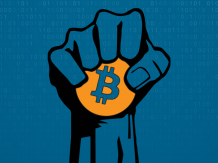When we talk about Nordic countries, thinking about their technological and economic developments is inevitable. The countries located in this region managed to display the best living conditions in the world.
Furthermore, the countries are quite tech-savvy therefore, they should have a good affiliation with everything fintech, right? Seeing how they have a great background in finance and technology, it should be a given that they’re welcoming to cryptos.
Unfortunately, the reality is not all roses and butterflies. The Nordic states were one of the first to implement a complete ban on Bitcoin as they were gearing up for research and analysis of what the asset actually was.
It’s very hard to imagine that such technologically developed countries would react in such a harsh way in the beginning. But now, crypto assets are now tucked away in a hastily assembled crypto regulation. The most notable countries that followed this pattern were Norway and Sweden.
Why crypto was such a surprise
In order to analyse the decisions of the governments, we need to imagine ourselves in their shoes. How would we react to something so sudden? Something so alien? We’d most likely impose a temporary ban before we could figure out what it was right? Well, technically yes, and that’s what Norway and Sweden did, but there were some other factors at play here.
But let’s give them the benefit of the doubt. You’re ruling a country, your quality of life indicators are through the roof, you have a stable economy, with an educated and well-off population. There’s arguably nothing that could go awry, and in comes this weird “digital money”, which threatens to turn it all upside down.
Bitcoin actually did have some ways to interfering with Norwegian and Swedish laws, especially in the gambling industry.
Why Bitcoin was dangerous
John Aarne Johansson from Nordic gambling news provider NorskeCasino writes in this article that Norway and Sweden have the strictest gaming regulations out of any European country. Gaming in these countries is virtually illegal, aside from a few state-owned companies.
The reason for such harsh laws was that both Norway and Sweden could see how gaming was affecting the population of the UK, where the number of problem gamers was quickly soaring. The only way out was to simply restrict it to a more manageable level.
Offline gaming was only allowed with local state-owned companies and online gaming was completely banned. Everybody who tried to deposit on a platform would have their transaction traced and revoked.
Bitcoin was a direct threat to that system, as its transaction system was completely anonymous, and in some cases un-traceable unless the company responsible for mining the block would disclose the information. But there was another problem, finding the miner themselves was also virtually impossible.
The whole of Norway’s and Sweden’s gaming regulation was being made obsolete, therefore they had to act somehow.
Naturally, there were other concerns as well, such as the mounting number of crypto scams in the country, as well as tax evasion on capital gains.
Why the regulation doesn’t work
Despite the fact that these regulations may discourage some local players, it’s still obvious that a large part of the country still engages in these activities. This can be proven by the increasing number of online platforms that are starting to offer transactions in Norwegian Krone.
It turns out that the law does exist in the country, but it is not effectively enforced, in fact, it is largely ignored. This leads to Norway doing nothing but harm with these regulations.
By restricting trustworthy companies from entering the market, fraudulent companies gain access through illegal means anyway.
Simply having the legitimate companies to counter-act the shady ones, would be enough to minimize any money-laundering or scamming cases. We can bring the US alcohol ban during the great depression. What did that bring? Less alcoholism? Definitely not. Did it increase crime and violence? Oh yes, it did.
Overall, governments still haven’t learned that by preventing honest companies from operating due to their business model, they’re inviting dishonest ones to squeeze through the firewalls.




